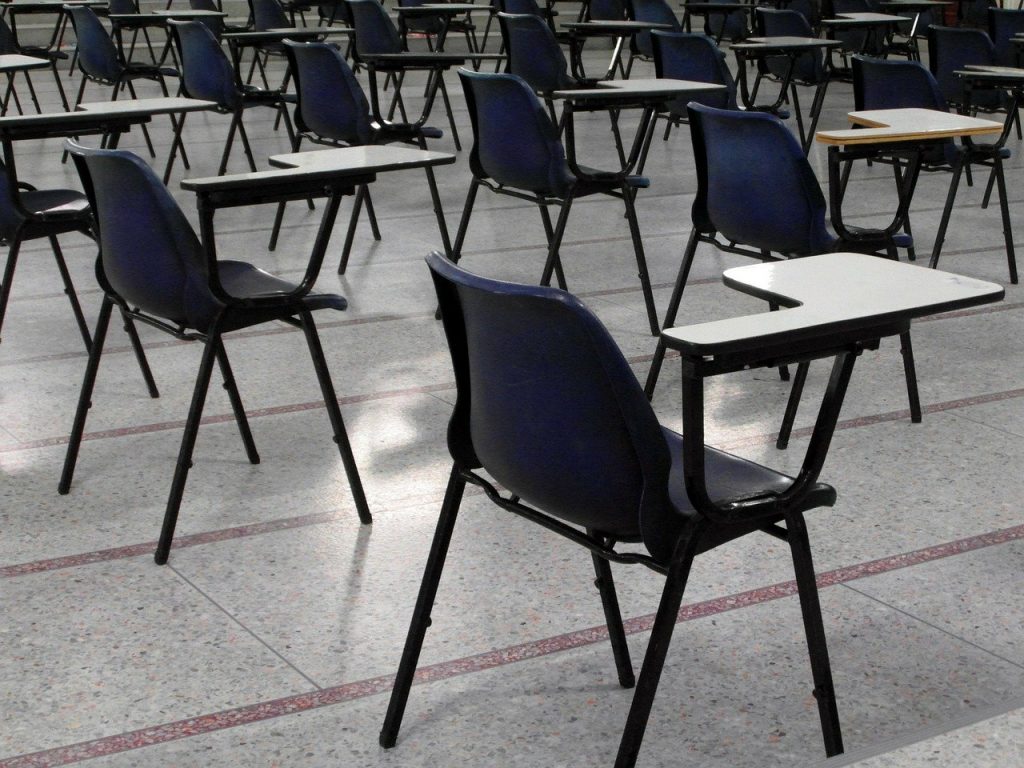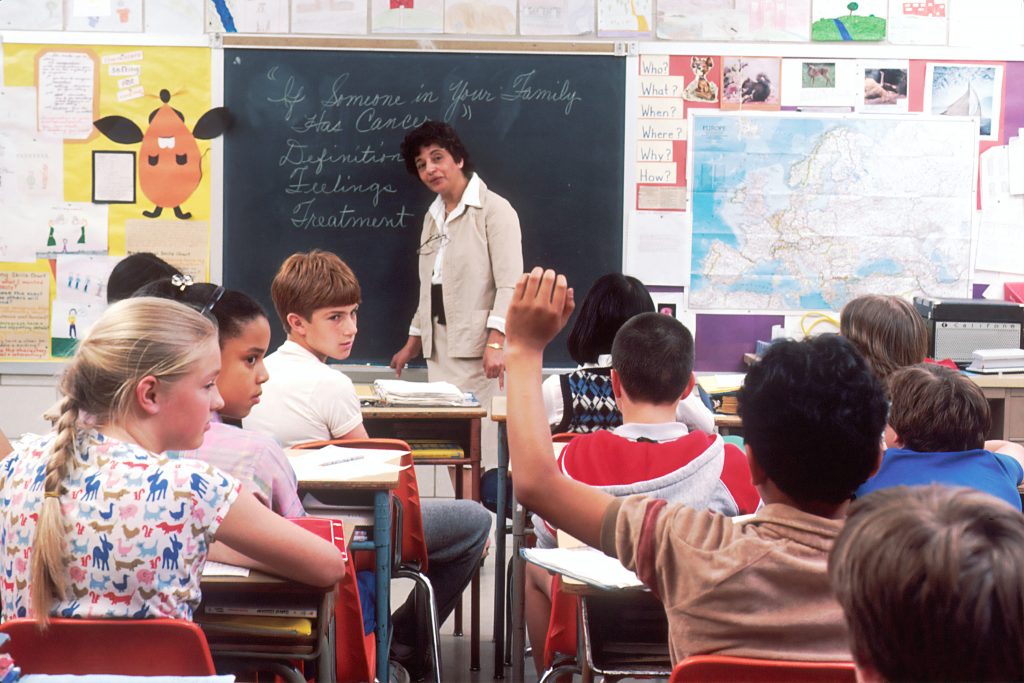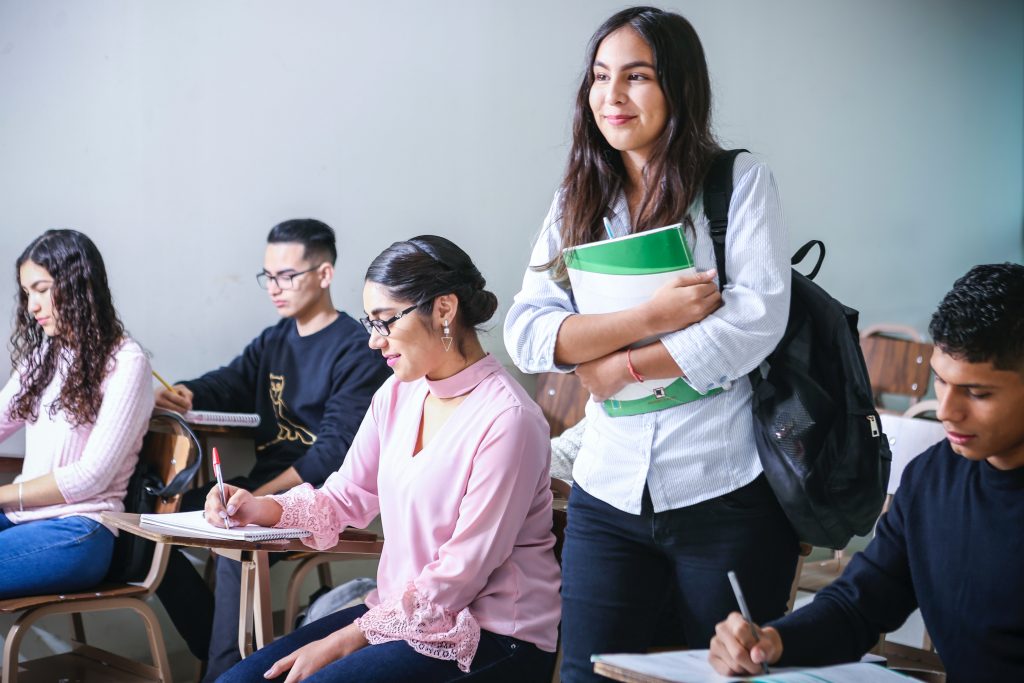With the cancellation of all GCSE and A level summer exams amid the coronavirus pandemic, the system for awarding student grades been transformed beyond recognition.
The government has provided some clarity on how grades will be awarded but concerns remain as to how learners from the most disadvantaged backgrounds will be affected, writes teacher trainer Edita Memisi.
In determining students’ grades, instead of exams, teachers will provide a guided assessment grade of their students’ attainment based on a combination of sources. These include classwork, coursework pieces and mock examination results, a process which will be moderated by the Office of Qualifications and Examinations (Ofqual). The Department for Education has asked teachers to make judgments on individual students and the grade they would have most likely achieved if they had sat their exam. While the decision to include a variety of sources of students’ work is a welcomed approach, there are still challenges to consider.

Credit: Photo by Rio Lecatompessy on Unsplash
Challenges of the new system
We all hold our own biases, unconscious or otherwise. Teachers will not consciously act on their biases, yet it is important to clarify how this system will mitigate against potential cases of this. Previous research has shown that teacher assessments can underestimate the attainment of disadvantaged students, particularly high-attaining poorer students. The system needs to ensure that no student, particularly those from disadvantaged backgrounds, will suffer from this.
Also, reforms to assessment have meant that the use of coursework has decreased in GCSE and A level subjects and so there will not be as much information available for teachers to base their decisions on as there might have been in previous years. A grading system that is informed by student work needs to be robust, fair and transparent.
Teachers are professionally trained to assess their students and do so throughout the year but, undoubtedly, there is a high level of accountability associated with teachers determining students’ final grades. There may be concerns amongst teachers with the high level of responsibility associated with making these decisions. Particularly in circumstances where GCSE predicted grades have mostly been used internally by schools to monitor and track student progress. There are reports that teachers have already been approached by parents who believe that their child’s predicted grades do not fairly reflect what they are capable of, with some students asking teachers for an improved current predicted grade.

Most schools internally use year 11 targets to monitor student progress which indicate what students should achieve by the end of year 11, if working at expected progress. These targets are informed by year 6 SATs results awarded at the end of primary school. The role that target grades will play in these decisions needs to be clarified for both teachers and schools. This is particularly important for students who have high targets. These students may have underperformed throughout their GCSE courses, yet are capable of a better grade than their prior attainment might suggest.
From my own experience as a teacher, I have had pupils whose classwork, homework and mock exams did not reflect their final performance in their exams. Some children have great potential within academia, while others are more practical. I fear children’s opportunity to show their academic potential, an opportunity which some have waited so long for, has been removed.
This system requires that teachers have the right support and training in the decisions they make in order to ensure that the system is both fair and accurate. This may be particularly difficult for schools with less resources. It will be important for exam boards to work closely with teachers and schools to ensure that students’ hard work and effort is recognised and importantly, fairly rewarded.
A system of appeal
In a situation where the stakes are so high, leaving students without the opportunity to demonstrate their progress over a two-year course in most subjects is clearly unfair to them. It has been confirmed that students unhappy with their grade can sit an exam as soon as is feasible or wait until the summer 2021 exam series. While the government have also allowed for a process of appeal in circumstances where students do not agree with the grade awarded, it is unclear what this system entails. For example, on what grounds and what evidence might need to be submitted. The existing exams’ appeal process can be difficult to navigate and involves a financial cost. Any appeals’ system that requires additional resources, legal or otherwise, might not be so easily accessed by disadvantaged students.
Predicted grades for university
It is also unclear how exam cancellations will impact the university application process but there are associated problems. The barriers in access to university for more disadvantaged students have long been discussed, with a lower representation at the most prestigious universities. Using predicted grades for university admissions is not without problems, due to their unreliability. The majority of predicted grades are inaccurate, and research has revealed that high attaining disadvantaged young people are particularly likely to have grades that are under-predicted relative to their actual performance in A level exams and when compared to their richer peers.

Credit: Photo by javier trueba on Unsplash
The inequity that underpins the education system in the UK based on socioeconomic background has the potential of becoming worse with this proposed mode of determining students’ outcomes and grades that will invariably impact, and in some circumstances limit, their future life choices and opportunities. These are indeed unprecedented times, yet a move to this new mode of determining grades needs to be carefully managed so as to mitigate against negative impacts on all students but particularly those from less well-off backgrounds and less well-resourced schools.






